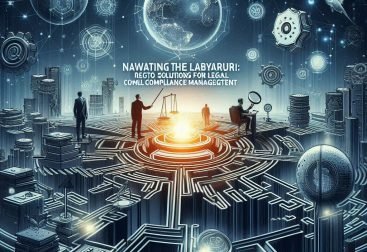The legal industry, steeped in tradition and precedent, is facing a wave of technological disruption. The rise of legal technology, or legal tech, is shaking up how legal services are delivered, accessed, and priced. But does this mean lawyers are becoming obsolete? Not quite. Let’s delve into the impact of legal tech and how it’s transforming the legal landscape.
The Rise of Legal Tech
Legal tech encompasses a broad range of tools and platforms designed to automate tasks, improve efficiency, and enhance legal services. This includes:
- Document automation: Software that generates contracts, NDAs, and other legal documents with minimal human intervention.
- Contract review: AI-powered tools that analyze contracts, identify potential risks, and suggest edits.
- E-discovery: Platforms that streamline the process of collecting, searching, and reviewing electronically stored information.
- Legal research: AI-powered research assistants that help lawyers find relevant case law and legal precedents.
- Online legal services: Platforms that connect individuals and businesses with lawyers for specific legal needs, often at a lower cost than traditional firms.
The Impact of Legal Tech
Legal tech is disrupting the industry in several ways:
- Increased Efficiency: Legal tech automates time-consuming tasks, freeing up lawyers to focus on complex legal issues and client strategy.
- Cost Reduction: By automating tasks and streamlining processes, legal tech can significantly reduce the cost of legal services. This makes legal help more accessible to individuals and small businesses.
- Improved Access to Justice: Online legal services platforms connect people with lawyers for specific legal needs, often at a lower cost than traditional firms. This helps bridge the gap in access to legal representation.
- Enhanced Client Experience: Legal tech can improve the client experience by providing faster turnaround times, more transparent pricing, and easier communication with lawyers.
Lawyers in the Age of Legal Tech
While legal tech is automating some tasks, it’s not replacing lawyers altogether. Here’s why:
- Human Judgment Remains Crucial: Complex legal issues require human judgment, critical thinking, and strategic analysis. Lawyers play a vital role in applying the law to unique situations and developing winning legal arguments.
- Client Relationships Matter: Clients still value the personal touch and guidance that lawyers provide. Building trust and rapport with clients is essential for successful legal representation.
- New Skills Required: Lawyers will need to adapt and develop new skills to thrive in the legal tech era. These skills include data analysis, technology literacy, and the ability to manage legal tech tools effectively.
The Future of Law: Collaboration, Not Competition
Legal tech is not a threat to lawyers; it’s an opportunity. Lawyers who embrace legal tech will be well-positioned to succeed in the future. Here’s what the future holds:
- Collaboration: Legal tech will enable lawyers to collaborate more effectively with clients and colleagues, both within and outside their firms.
- Specialization: The rise of legal tech will likely lead to increased specialization among lawyers, allowing them to focus on specific areas of law and leverage technology to become experts.
- Value-Added Services: Lawyers will need to focus on providing high-value services such as strategic advice, negotiation, and litigation strategy.
In conclusion, legal tech is transforming the legal industry, but it’s not making lawyers obsolete. Instead, it’s creating a new era of law where technology complements the expertise and judgment of human lawyers. By embracing legal tech and developing the necessary skills, lawyers can continue to deliver exceptional legal services in a more efficient, cost-effective, and client-centric way.









